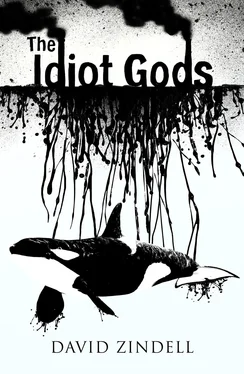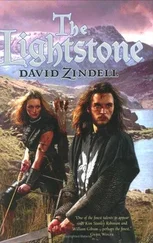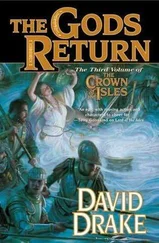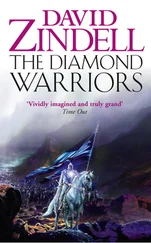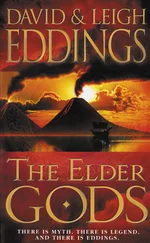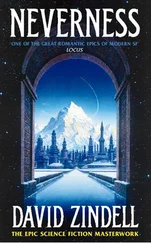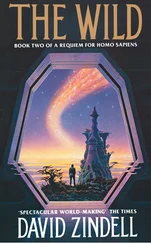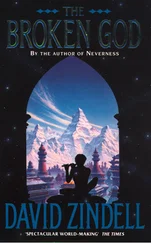Might Arjuna’s Seveners be some sort of very intelligent colonial organism assembled from bacteria similar to Geobacter metallireducens and Shewanella ? We have no evidence of that, and we are skeptical that such a creature either does or could exist. It seems much more likely that Arjuna encountered (and ate) some sort of organism whose tissues produce alkaloids similar to those found in Psilocybe cubensis or Lophophora willamsii . Very intense hallucinations would account for Arjuna’s insistence that what he experienced in the South Pacific was as real as his birth or any other event of his remarkable life.
Before closing this introduction to that life, we would like to say something about two terms that Arjuna uses at various times throughout his account. The first is the name he often used to describe human beings: the idiot gods. He thought long and deep before deciding on this sobriquet. At times, he thought it much more apt to call our species the mad gods or the insane gods. However, madness can too easily be associated with anger, and although Arjuna certainly saw human beings as afflicted with wrath, as a rabid dog is lyssavirus , he did not see this as humanity’s greatest sin. Neither did he think of our kind as purely insane. Rather, he perceived in our derangement of sense and soul a willful debilitation, as if we human beings are an entire race of sleepwalkers moving through a nightmare from which we refuse to awaken. We are, he once said, like lost children wandering through a dark landscape without markers or boundaries. He had great compassion for (and dread of) our innocence . Given the horrors that Arjuna recounts, that seems a strange word to apply to the human kind, but it motivates his choice to call us idiots. It is the holy fool kind of innocence of Prince Myshkin in Dostoevsky’s The Idiot as well as the deadly innocence of the young man Lone in Sturgeon’s The Fabulous Idiot , incorporated into the great work known as More Than Human . Of all humanity’s failings that Arjuna enumerates in such painstaking and painful detail, he counts as the very worst our refusal to embrace our best possibilities and so to live as gods.
The second term we would like to define is quenge, the most quintessential part of a whale’s true nature. Arjuna himself coined the word to represent a nearly ineffable cetacean sensibility and prowess. We would like to explain this strange word, though of course it remains inexplicable. One might as well try to describe a magnificent city on a hill, bright with sunlit cathedrals and great spires, to a band of cave-dwellers. The best course for anyone wishing to know more is to make one’s way into Arjuna’s story. But please do so with an open mind, and even more, with an open heart. Readers who reach the end without having any idea of what it is to quenge will have wasted their time – and Arjuna’s.
The humans call me Arjuna, after the hero who spoke with the God of Truth, though they cannot say my real name any more than they can say why the starlit sea sings with such a hush, lovely fire or why they themselves are alive.
When I was a young whale unacquainted with human might and madness, I swam with my family through the icy waters near the top of the world – the world they call Earth and we call Ocean. Along the cold currents we hunted char and salmon and other fishes that schooled in never-ending silvery streams; along our fiery blood we sought ecstasies of creation even as we listened for the great and singular Song that sounds within all things. Sometimes, we gave voice to the deep, unutterable mysteries bound up in the chords of this song; more often we told tales of the glories of our Old Ones or the adventures of the newborn babies just beginning to speak. We held midnight feasts beneath the pink and emerald sprays of light raining down from the Aurora Borealis. During the long, long days of summer, we dove beneath the icebergs and we mated and played and loved and dreamed.
We quenged. Guided by our true nature, which always knows the intention of life and the way home, we followed the ocean’s song wherever it called us, listening always for its source. Great journeys we made! One fine day might find us visiting with the Old Ones in the turquoise swells of the Caribbean ten thousand years ago while on the next day we might wend our way along the arc of the Aurora and swim through ages yet to be up to the stars. We delved the deeps of oceans on worlds without number, daring each other to move ever further outward and inward beyond the limits of space and time. Down through unknown seas we plunged into the melodies of songs sung again and again since the world’s beginning – and into the souls of the stories that their singers poured forth with so much delight. Who could escape from the account of how Mother Maia fought off a hundred great white sharks in order to protect her children? Who could forget the epic of Aldebaran the Great’s circumnavigation of the globe in search of the perfect color of crimsong with which to paint his great tone poem? Who could resist the urge to become both bard and hero of one’s own story? Why else are we here? Are not our lives the very songs that sing the universe into creation?
Many of our best adventures came through dreams or revelations or even the babblings of babes still drinking milk; the worst came out of places so dark and disturbing that few wished ever to go there. It seemed that no whale could ever conceive them. Once, while we were making our way across the nearly infinite seas of Agathange east of earth, I nearly choked on reddened waters and caught a glimpse of a blue god and masses of belligerents slaughtering each other. Another time, on Tiralee, I learned of an eternal quest to find a golden conch shell said to hold entire constellations and oceans inside. I trembled at the vivacity of such visions, for I experienced them simultaneously as impossible and too real, as familiar and utterly strange.
How terrified I was at first of these wild wanderings! How confused, how desperate, how consumed! My mother, though, sleek and black and white and beautiful, swam always beside me with powerful, rhythmic strokes that told of the faith of her great, bottomless heart. She reassured me with murmurs of maternal encouragements as well as with clear, cool logic: was not water, she asked me, the unitive substance which ripples with the shimmering interconnectedness of all things? Was not I, myself, made of water, as was she and my uncles and my ancestors? How could I ever be separate from the sea which had formed me or fail to find my way home? Could I not hear, always, within my own heart the ringing of life’s great song?
Yes, I told her, emboldened by a growing fearlessness, yes, yes I could! Her love, onstreaming like the strongest of currents, filled me with joy. And so I quenged through the world and through the eternal musics which gave it form, moving always and ever deeper and deeper. The water flowed through my skin, and I flowed through the water, and the ocean and I were as one.
I do not remember my conception. Humans die in worry of what will become of them after the worms have eaten their bodies and they are gone; we whales live in wonder of what we were before we came to be. What we were is what we are and always will be: we are salt and seaweed, haddock and diatom and grains of sand glimmering among the fronds of red and purple coral. The ocean forms us out of itself, and each drop of water – each molecule – reverberates with an indestructible consciousness. As we quicken and grow within our mothers’ wombs, we gradually come into full consciousness of our indestructible selves and of the way we are both a tiny part and the entirety of the universe. And then one day, we realize that we are awake and aware – aware that there never could have been a time in which we did not exist.
Читать дальше
